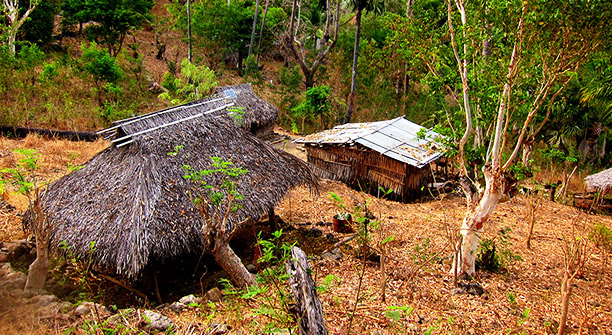Universal health coverage (UHC), which implies all people have access to needed services without the risk of financial ruin, has become a major goal for health reform in many countries. Fiji and Timor Leste are currently seeking to modify their financing systems so they can move more quickly to UHC and to maintain it once it has been achieved. Taking a ‘systems wide’ approach, that includes both public and private sectors, the SHIFT team will provide much needed evidence on the current equity of health-system financing and service use in these countries. This will primarily be done using two techniques: financing incidence analysis which measures financing burden across socioeconomic groups; and benefit incidence analysis which measures the distribution of health care benefits across socioeconomic groups. The study, which is being undertaken in close collaboration with the national universities of Fiji and Timor Leste and the local Ministries of Health, aims to help these countries move towards universal coverage and to build local capacity in the routine assessment of health systems equity. This 3 year study (2013-2016) is funded by Australian Aid, Department of Foreign Affairs and Trade.
Resources
|
|
|
 “I go I die, I stay I die, better to stay and die in my house”: understanding the barriers to accessing health care in Timor-Leste “I go I die, I stay I die, better to stay and die in my house”: understanding the barriers to accessing health care in Timor-LesteJennifer A Price, Ana IF Sousa Soares, Augustine D Asante, Joao S Martins, Kate Williams, Virginia L Wiseman Despite public health care being free at the point of delivery in Timor-Leste, wealthier patients access hospital care at nearly twice the rate of poorer patients. This study seeks to understand the barriers driving inequitable utilisation of hospital services in Timor-Leste from the perspective of community members and health care managers. This multisite qualitative study in Timor-Leste conducted gender segregated focus groups (n = 8) in eight districts, with 59 adults in urban and rural settings, and in-depth interviews (n = 8) with the Director of community health centres. Communication was in the local language, Tetum, using a pre-tested interview schedule. Approval was obtained from community and national stakeholders, with written consent from participants. <Read article> |
|
| SHIFT Policy Brief
This study represents the first attempt to quantify financing and benefit incidence for the entire health systems of Fiji and Timor Leste. Incidence analyses can be very useful tools for assessing health system performance. (uploaded November 2013) |
|
| SHIFT Project Household Survey Field Manual for Fiji The SHIFT project is interested in how the people of Fiji use their health services and who pays for the health system. Every country pays for their health services differently. In Fiji, the government pays for most health services and a few are provided by the private sector, such as private doctors or pharmacies. The household survey asks about the different types of costs households incur when accessing health services. (uploaded August 2014) |
|
| SHIFT Project Household Survey Questionnaire for Fiji This household survey will gather important information on what services people use (e.g. hospitals, clinics, private doctors or traditional healers and so on) and how often they use them. People decide which health service to use based on many reasons – for instance, how close is the facility to where they live or work, which facility they feel has the best service, what treatment they need and how much money it will cost. The household survey also asks about reasons for choosing one type of service over another. (uploaded August 2014) |
|
|
SHIFT Project Household Survey Questionnaire for Timor-Leste: English-Tetum version |
|
|
SHIFT Project protocol ‘Assessment of equity in health care financing in Fiji and Timor-Leste: a study protocol’ |
|
|
Ten best resources for conducting financing and benefit incidence analysis in resource-poor settings |
Fijian Minister for Health, Hon. Jone Usamate launches Shift Study.Congratulations to A/Prof Virginia Wiseman and the team on the recent launch of SHIFT study in Fiji by the Hon. Jone Usamate!. <Visit SHIFT website> |
|
|
|
|
The Director of the Health Planning and Policy Development Unit at the Fiji Ministry of Health talks about the SHIFT project and its potential impacts on health services in Fiji.Every country pays for their health services differently. In Fiji, the government pays for most health services and a few are provided by the private sector, such as private doctors or pharmacies. The household survey asks about the different types of costs households incur when accessing health services. |
|

 Health Financing Equity and Universal Coverage in Fiji: SHIFT Summary Report October 2015
Health Financing Equity and Universal Coverage in Fiji: SHIFT Summary Report October 2015